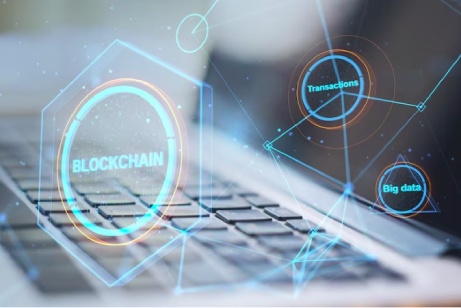-
Cryptocurrency and blockchain technology have brought groundbreaking advancements, enhancing transparency, decentralization, and distribution channels. One of the most transformative applications is asset tokenization, a blockchain solution that has shifted how we view physical asset management. By digitizing real-world assets, tokenization unlocks new possibilities for ownership, trading, and value transfer. In this article, we'll dive deeper into the concept of asset tokenization, exploring its core benefits and the factors to consider before entering the token economy.
To help businesses navigate this space, partnering with a trusted asset tokenization development company ensures secure, scalable solutions tailored to your unique needs.
Asset Tokenization
Asset tokenization is a process of converting a real tradable asset into a blockchain token to enable its sale, purchase, and exchange on a blockchain. Additionally, it lets trading of a fraction of that asset. Since the data in a blockchain is immutable, the network guarantees the ownership of an asset after buying its token. Asset tokenization is gaining momentum across different businesses due to benefits like liquidity, speedy settlement, and reduced costs. You may also like to explore: Blockchain Based-Tokenization | A Guide to Essentials
Types of Tokenised Assets
Tokenized assets are classified into two broad categories depending on their nature and speculation:
Based on Nature
Based on nature, there are the following types of tokenized assets:
Tangible Assets
These assets have a physical form and hold some monetary value.
Fungible Assets
These assets have equivalent value with each other and therefore are interchangeable.
Non-Fungible Assets
These assets have unique values, so one cannot interchange them. Suggested Read: NFT (Non-Fungible Tokens) | Taking the Crypto Space by Storm
Based on Speculation
On the basis of speculation, tokenized assets are categorized into the following categories:
Currency Tokens
These tokens represent currencies in digital format.
Utility Tokens
Utility tokens support funding for crypto development. One can also employ them to buy a product or service from the cryptocurrency issuer.
Security Tokens
Security tokens represent traditional securities in digital format. Also, Visit: NFTs in Sports | The Rise of Tokenization on Blockchain
The Benefits of Asset Tokenization
From transparency to immutability, asset tokenization offers the following benefits:
Transparency
Asset tokenization uses smart contracts to define token attributes and the responsibilities and rights of token holders. This data gives prospective buyers details about the transaction history, token holder, and more. These factors enhance transparency in the asset management process and thereby helping investors to make informed decisions.
Better Efficiency and Automation
Smart contracts in asset tokenization enable automation of the process. So, it removes the need for intermediaries and reduces the cost burden and efforts required in complete process administration. It increases the speed and cost-effectiveness of transactions.
Enhanced Accessibility
Asset tokenization on the blockchain allows asset fragmentation to the minimum possible tokens. Subsequently, it enables investors to get the ownership of a small share fraction. Thus, it reduces the minimum investment period and amount for various investors.
Improved Liquidity
Currently, the market is illiquid for privately held enterprises. Buyers and sellers take a lot of time to know each other and their offerings. They also require lawyers to create a business contract for transaction execution. Asset tokenization can streamline this process with blockchain platforms. Tokens represent private company securities. Then, firms can sell their tokens to participants with pre-vetted areas, including authorized investors. Investors can leave the blockchain platform anytime by trading their tokens on a secondary market efficiently without early redemption. It encourages high-net-worth agencies and individuals to invest in private company securities. Also, Check | Fractional Real Estate NFTs: The Next Wave of NFTs
Industries using Asset Tokenization
We have enlisted the following industries that use asset tokenization:
Finance
Tokenization is changing the fintech industry in many ways, including margin lending, investments, payments, product structuring, and more. It enables finance firms with to change their assets into digital cryptos that they can seamlessly exchange. It removes the need to store the credit card number in POS machines and other systems. Thus, it increases liquidity in the market and reduces data security breaches.
Healthcare
Asset tokenization in the healthcare sector can tackle some of the critical problems. It can aid in confidential and sensitive patient data replacement with non-sensitive values. The private data may include ePHI, NPPi, and PANs. Healthcare organizations and patients gain authority over the creation, sharing, and access of sensitive data from intermediaries.
Real Estate
Businesses or individuals use the concept of real estate tokenization to streamline the investing process. It removes third-party involvement. Thus, it makes buyer-seller interaction easier and more cost-effective. Additionally, it does not impose restrictions on the investment amount. So, it enables a better marketplace for everyone. Read More: Real Estate Tokenization and Blockchain | An In-depth Guide
Conclusion
Asset tokenization is transforming the asset management process. It standardizes access to markets while offering security and fairness. However, legal systems have become obstacles. It requires legal professionals to develop a legal bridge between blockchain and assets. But new solutions will emerge in the coming years. Asset tokenization has the potential to bring new opportunities and services to the market. If you are interested in utilizing the perks of asset tokenization, then consult our blockchain development experts. Our developers understand the entire process. Contact us today to tokenize your assets.

Our Offices
INDIA
Emaar Digital Greens, Sector 61,
Gurugram, Haryana
122011.
Welldone Tech Park,
Sector 48, Sohna road,
Gurugram, Haryana
122018.















